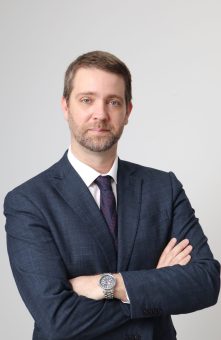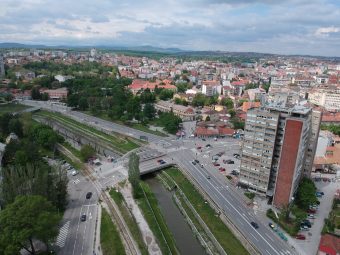
To know who we are today, we need to know who we were throughout history. To quote a man who made his mark on humanity: “History is the witness that testifies to the passing of time; it illumines reality, vitalizes memory, provides guidance in daily life and brings us tidings of antiquities.” (Cicero)
Throughout its history, the town of Kragujevac has deservedly been called “the first”. Three years after Ottoman rule ended, Kragujevac was declared the capital of the autonomous principality of Serbia. Novine Srbske, the first national newspaper whose editor was Dimitrije Davidović, was also published in this city. Today, resting on its tradition, Kragujevac won the competition for the number one eco-municipality in the Energy Efficiency category. To earn the title of eco-municipality, at a time when ecology represents the most important issue for future survival, was not an easy feat. Just before another successful year for this city ends, we spoke with the Kragujevac Mayor, Nikola Dašić, about the town’s impressive successes.
EP: Five half-century-old coal-fired boilers were replaced with new gas-fired boilers in the Energetika heating plant in Kragujevac. How much has the carbon dioxide emission been reduced and what are the plans for the rehabilitation of the ash dump?
Nikola Dašić: The reconstruction and changing energy-generating products in the city’s heating plant is one of the most important large-scale projects in Kragujevac. With the installation of new gas boilers, 50-year-old coal-fired boilers, which were serious pollutants, were decommissioned, and this will greatly improve the air quality in the city area. Everything was done according to the relevant global standards and the district heating system in Kragujevac can now compete with heating systems in any European city. The benefits of this were felt when the heating season started. The emission of carbon into the atmosphere was reduced by more than 70 per cent. The next project phase is the rehabilitation of the ash dump that is located on the heating plant premises, which also pollutes the environment as the ash was being scattered all around. We found the best solution in consultations with EBRD experts. The ash will be used as construction material for the construction of 15km of local roads in Kragujevac at the beginning of the next construction season.
IN FOCUS:
- SYSTEMIC SOLUTIONS FOR A HEALTHY ENVIRONMENT
- SCOBY — INSPIRATION IN A GLASS OF KOMBUCHA
- WASTEWATER TREATMENT AND PRESERVATION OF FRESH WATER SOURCES
EP: The plan is also to reconstruct a part of the hot water pipeline that supplies consumers in the Kragujevac neighbourhoods of Erdoglija, Lepenica and Centar. Did you manage to put that into practice?
Nikola Dašić: As part of the preparations for this heating season, we completed the overhaul of the main heating pipe, going all the way to the city centre. A total of 3.6km of pipes were replaced, which significantly improved the distribution of thermal energy to the neighbourhoods of Lepenica, Centar and Erdoglija.
EP: So far, 14 unregulated landfills have been removed. In what way will waste be managed in the future so that no new unregulated landfills are created?

Nikola Dašić: Due to the negligent disposal of municipal and construction waste, every once in a while, an unregulated landfill is created in various neighbourhoods in Kragujevac. The teams from the Šumadija public utility company remove such waste exclusively by order of the communal inspection. In June, under the auspices of a project implemented by the Ministry of Environmental Protection called “Joint Forces Against Unregulated Landfills in Kragujevac”, as many as 14 of the largest unregulated dumps were removed. The line ministry allocated more than one million dinars for this purpose.
The workers of the Šumadija public utility company visit the most critical locations in the city every day, where, even after cleaning, municipal waste is dumped again in the same place. The citizens themselves can help a lot with this. Anyone who notices accumulated municipal or bulky, construction waste, can submit a report with the exact location of the dump to the local inspection, which, after the inspection, issues an order to the utility company to clean the location. In order to remove bulky waste faster and more efficiently, the Šumadija public utility company organizes free pick-up of old furniture, doors, windows, and the like, every first and third Saturday of the month, as well as on weekdays, by citizens’ invitation.
On the other hand, it is still impossible to completely prevent the emergence of unregulated landfills, and in this sense, we need to educate the citizens on the one hand, but also sanction those individuals who treat nature irresponsibly.
Interviewed by: Katarina Vuinac
Read the story in the new issue of the Energy portal Magazine RESPONSIBLE BUSINESS



